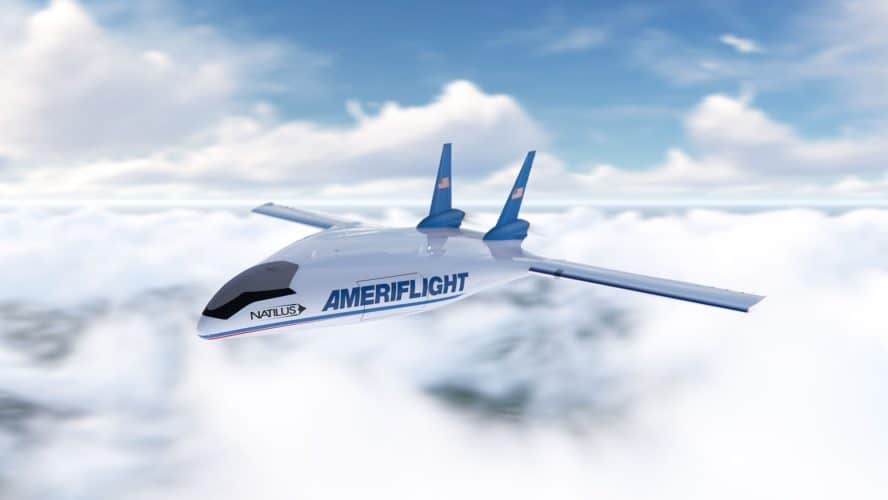



Cargo operator Ameriflight has placed an order for 20 Kona autonomous feeder cargo aircraft from Natilus in a strategic move to be the first regional US carrier to develop a new roadmap for the future of air freight operations.
This new Ameriflight agreement, valued at $134 million, brings total commitments for Natilus to $6.8 billion for delivery of over 460 aircraft.
“Through this strategic partnership, we are positioning Ameriflight to build the roadmap for the future in cargo operations and be the first regional operator for Natilus in the United States,” said Alan Rusinowitz, President and Chief Operating Officer of Ameriflight. “Our goal is to grow our product and transform the way we do business through innovation and collaboration, and now through this new partnership with Natilus, Ameriflight will connect the world safely within a sustainable business model.”
Ameriflight is one of the nation’s largest Part 135 cargo airlines, serving 200 destinations throughout the United States, Canada, Mexico, the Caribbean and South America – with more than 1,500 weekly departures. As a critical part of the supply chain with UPS being its largest customer, Ameriflight’s primary business is moving high priority air freight to and from remote areas across the country for overnight express carriers.
The Natilus fleet of carbon fiber, blended-wing-body designed cargo aircraft offers a 60% reduction in the cost of operations and cuts carbon emissions by half – enabling the opening of new and emerging markets in remote areas where larger aircraft do not have the runway capacity and/or infrastructure to land, through both scheduled and specialized operations. This will provide needed medicines, food, and other important goods to develop these outlying areas.
“Innovation in design allows the Natilus fleet to carry more volume at lower costs, and the exploration of new sustainable fuels will lower carbon emissions,” explained Aleksey Matyushev, Co-Founder and CEO of Natilus. “The Ameriflight agreement is a major move forward for the air cargo industry to strengthen the regional supply chain.”
“Developing autonomous solutions that are purpose-built to address the needs of the air cargo market is one important step toward developing more robust long-term solutions,” continued Matyushev. “Autonomous technologies seek to utilize labor more efficiently by allowing a single pilot to control multiple aircraft, helping address the dire pilot shortage.”





Related Posts
New Drone Fires Thales Missile in Unmanned Air Combat Milestone
UAS Startup Accelerator Awards 3M in Funding
US Navy Orders Unmanned Tactical Resupply Aircraft